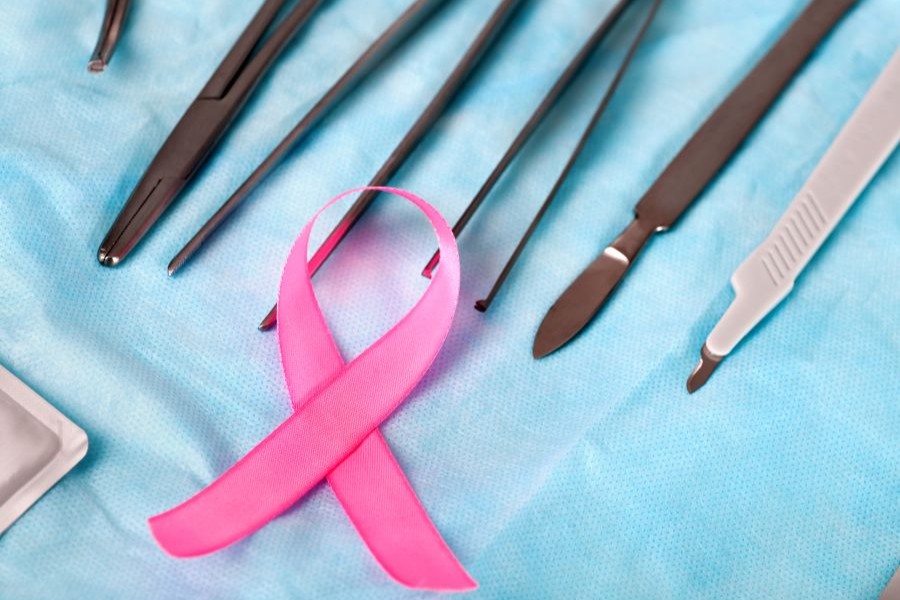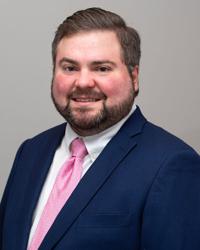
Dr. Anthony Scott, breast surgeon with North Atlanta Breast Care, explains how patients and physicians decide between lumpectomy and mastectomy. He discusses medical factors, recovery, emotional considerations and how shared decision-making helps women feel informed and confident in their treatment choices.
How do you decide between a lumpectomy and a mastectomy?
Dr. Scott: The decision between lumpectomy and mastectomy depends on both medical and personal factors. Medically, lumpectomy is appropriate when the tumor is small relative to the breast size and can be removed with clear margins while maintaining a good cosmetic result. Mastectomy may be recommended if there are multiple areas of cancer, prior radiation to the breast, persistent positive margins or if the patient has a genetic mutation that increases future breast cancer risk.
Personal preferences also play a major role. Some patients prioritize breast preservation, while others feel more comfortable with mastectomy for peace of mind. Shared decision-making is essential — patients should understand that survival outcomes are equivalent between the two and consider the pros and cons of each approach.
Does one option offer better survival rates?
Dr. Scott: For most early-stage breast cancers, lumpectomy followed by radiation offers the same survival rate as mastectomy. The difference lies in recurrence patterns: lumpectomy carries a small risk of cancer returning in the remaining breast tissue, while mastectomy reduces local risk but does not eliminate the chance of recurrence elsewhere in the body.
Neither option provides a survival advantage; the choice depends on personal values and quality of life.
Why is radiation needed after a lumpectomy?
Dr. Scott: After lumpectomy, radiation therapy is standard because it significantly reduces the risk of cancer returning to the breast by treating microscopic cancer cells that may remain after surgery. In some cases — such as certain noninvasive cancers or elderly patients — radiation may be safely omitted without affecting survival.
After mastectomy, radiation is not always required but is recommended in higher-risk situations, such as when the tumor is large, lymph nodes are involved or margins are close. Many mastectomy patients do not need radiation, but some still benefit from it depending on their pathology.
How do recovery and side effects compare?
Dr. Scott: Lumpectomy is typically an outpatient procedure with a quick recovery. Most patients resume normal activity within a few days. Mastectomy, with or without reconstruction, is more extensive and requires several weeks for recovery. Patients may experience more discomfort, numbness and chest tightness.
Both procedures often include a sentinel lymph node biopsy or axillary dissection under the arm, which also requires healing, ranging from a few days to several weeks, depending on the extent of surgery.
What follow-up care is needed after surgery?
Dr. Scott: After lumpectomy, patients continue annual mammograms and sometimes targeted imaging of the treated breast. Radiation can make interpretation more complex initially, but radiologists are skilled at reading post-treatment images. Screening typically resumes one year after the previous imaging, and additional studies may be needed to establish a new baseline.
After a mastectomy, routine mammograms are not needed on the removed side, though the remaining breast still requires surveillance. Clinical exams of the reconstructed breast or chest wall remain part of long-term follow-up, with diagnostic imaging as needed if concerns arise.
How do patients typically respond emotionally to each option?
Dr. Scott: This is one of the most emotionally charged decisions in breast cancer care. Some patients feel empowered choosing lumpectomy and preserving their breast, while others find greater peace of mind with mastectomy. Factors such as body image, sexuality, fear of recurrence and family influence all play a role.
Patients are encouraged to speak with breast nurse navigators, family and support groups. Hearing from survivors and taking time to process the decision can make a big difference. The goal is for every patient to feel confident and comfortable with their choice.
What are the options for reconstruction — or not having it?
Dr. Scott: Reconstruction is optional and can be done immediately, later or not at all. Techniques include implants or using the patient’s own tissue, depending on anatomy, previous surgeries and treatment plans.
Choosing to “go flat” without reconstruction is also a valid and empowering decision for many women. Since reconstruction involves additional surgeries and risks, it’s important for patients to meet with a reconstructive surgeon early to review options and make an informed decision.
What advice do you give patients struggling to choose between options?
Dr. Scott: There’s no wrong choice as long as it’s informed and aligns with the patient’s values. Patients should consider daily life after each surgery, the emotional and physical impacts and recurrence data.
If uncertain, taking time to process the information or speaking with survivors who’ve had each procedure can help. The best decision balances medical safety with emotional peace. Factors such as age and other health conditions may also make less invasive options preferable.
Is there anything else you would like to add?
Dr. Scott: Breast cancer treatment is deeply personal. A surgeon’s role is to combine evidence-based medicine with compassion — to help patients not just survive but feel whole again. Whether choosing lumpectomy or mastectomy, what matters most is that patients feel heard, supported, informed and empowered every step of the way.
Learn more about breast surgery at Northside Hospital.

